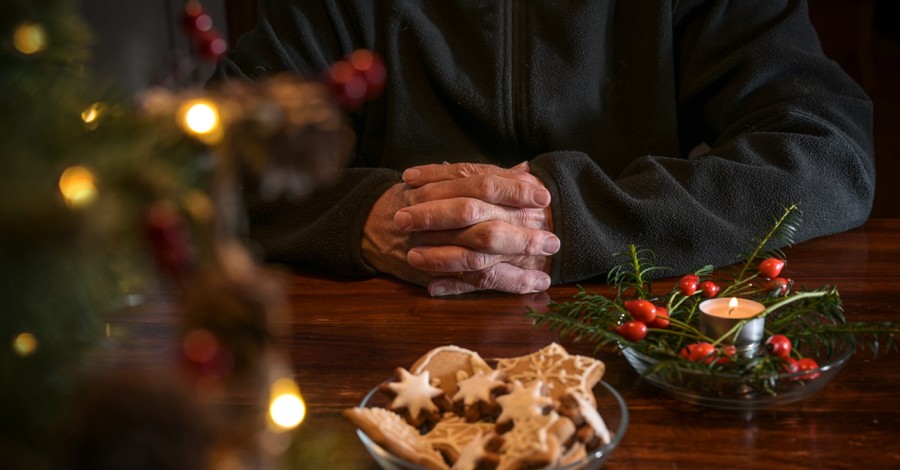
NOTE: Late yesterday, the Colorado Supreme Court barred former President Donald Trump from appearing on the 2024 presidential primary ballot. I will discuss this ruling in a Special Edition later today.
I must begin with a confession: I’m not a big fan of Christmas movies. I’d rather watch football over the holidays and catch up on novels. In fact, I had not seen Elf, consistently ranked among the best Christmas movies, until our grandkids recently asked to watch it with us. I now understand why it’s so popular. But I’m not changing my mind about the predictability and “cheese” factor of many holiday movies.
It turns out that’s why they’re so popular.
Dr. Pamela Rutledge, a media psychologist and director of the Media Psychology Research Center, explains: “You would almost be disappointed if they weren’t a little cheesy and predictable because that’s why you’re there. You’re there to have a feel-good movie. This lowers stress, and it reinforces feelings of hope and renewal and all of those things that Christmas is supposed to bring.”
The good news that can be bad news.
Dr. Rutledge is obviously right about our need for “hope and renewal” these days.
North Korea fired an intercontinental ballistic missile this week that has the range to strike anywhere in the mainland United States. The CDC is warning that hospitals and emergency rooms could be forced to ration care by the end of this month as COVID-19 hospitalizations rise while influenza and RSV cases remain high.
The volcanic eruption in Iceland, the deadly earthquake in China, and the powerful storm in the northeastern US are reminders of our finitude and frailty. The ongoing Houthi attacks on international commerce illustrate the susceptibility of the global economy to terrorists.
There is much about the world that is not in our power to change. Which of these stories can you impact through your personal influence and capacities?
The good news—which can be bad news as well—is that the resources most foundational to American democracy are as much within our grasp as when our nation was founded.
“We must not sink into pagan materialism”
Speaking in 1926 to commemorate the 150th birthday of the Declaration of Independence, President Calvin Coolidge concluded:
[The Declaration] is the product of the spiritual insight of the people. We live in an age of science and of abounding accumulation of material things. These did not create our Declaration. Our Declaration created them. The things of the spirit come first. Unless we cling to that, all our material prosperity, overwhelming though it may appear, will turn to a barren scepter in our grasp. If we are to maintain the great heritage that has been bequeathed to us, we must be like-minded as the fathers who created it. We must not sink into pagan materialism. We must cultivate the reverence that they had for the things that are holy. We must follow the spiritual and moral leadership which they showed. We must keep replenished, that they may glow with a more compelling flame, the altar fires before which they worshiped.
As one example of these “altar fires,” consider our first president’s warning: “Let us with caution indulge the supposition that morality can be maintained without religion. . . . Reason and experience both forbid us to expect that national morality can prevail in exclusion of religious principle.”
The “father of our country” also believed that “the foundations of our national policy will be laid in the pure and immutable principles of private morality.” And he asked, “Can it be that Providence has not connected the permanent felicity of a nation with its virtue?”
“Though the fig tree should not blossom”
Both presidents were echoing biblical principles proclaimed twenty-five centuries earlier when God warned the sinful Babylonians: “Woe to him who builds a town with blood and founds a city on iniquity!” (Habakkuk 2:12). In response, he announced his ultimate purpose: “The earth will be filled with the knowledge of the glory of the Lᴏʀᴅ as the waters cover the sea” (v. 14). Everything God did then and everything he does now is a means to this end.
This is not because the Lord is a divine egotist. On the contrary, for God to seek the glory of anyone above his own would be for him to commit idolatry. Similarly, for us to glorify anyone above the Lord, commits the same sin, and forfeits all God can do in lives that are fully yielded to his purposes.
Now, you and I have the privilege and the responsibility of choosing to think biblically and act redemptively. We can “cultivate the reverence” for “the things which are holy” that are foundational to our national virtue and thus to our “permanent felicity” under God. During this Advent week of joy, no matter how challenging our circumstances, we can then say with the prophet of old:
Though the fig tree should not blossom, nor fruit be on the vines, the produce of the olive fail and the fields yield no food, the flock is cut off from the fold, and there be no herd in the stalls, yet I will rejoice in the Lᴏʀᴅ; I will take joy in the God of my salvation” (Habakkuk 3:17–18).
In what—or whom—will you “take joy” today?
Photo Courtesy: ©Getty Images/Fermate
Publish Date: December 20, 2023
The views expressed in this commentary do not necessarily reflect those of CrosswalkHeadlines.
For more from the Denison Forum, please visit www.denisonforum.org.
The Daily Article Podcast is Here!












